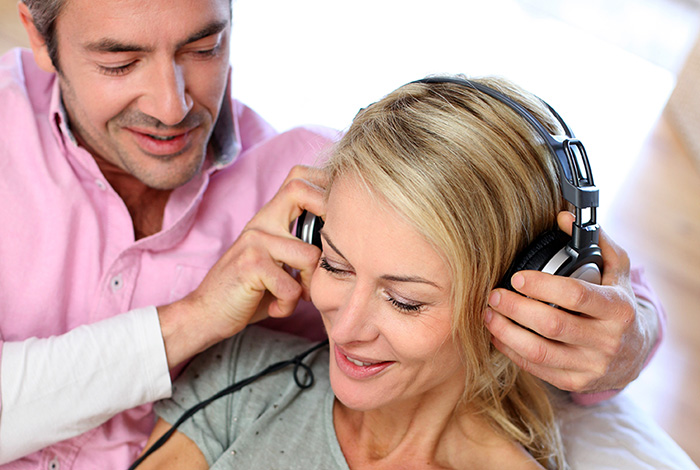
Hearing Loss: What to Do When It Becomes Hard to Hear
Hearing loss is a serious problem that affects nearly all of us in some way, whether you personally suffer hearing loss or not. The difficulty for anyone impacted by hearing loss is obvious, however we often overlook the impact to those around the sufferer. Basic communication can become difficult, causing frustration. I have seen this occurrence personally with my family and friends, and also with many patients that I see in my practice. The majority of patients that we treat are adults, but children with ear infections may have hearing loss.
There are many different causes of hearing loss, from exposure to noise to age-related hearing loss and trauma. Depending on the cause and severity, there are many different treatments that can improve quality of life. At Schneiderman ENT, we start with an ear, nose and throat evaluation, as well as with a hearing test.The first culprit to address is surprisingly ear wax! If we see a significant build up in the ear canal, we can clear it. This is a quick procedure which can (in some cases) greatly improve hearing! Many patients have been surprised at how much something as small as wax can impact their day-to-day life.
If the ears are found to be otherwise unremarkable – without obvious obstruction, infection, or wax – a hearing test can be done to assess the degree and type of hearing loss. The hearing loss may be associated with an obstruction of the ear canal, a disorder of the middle ear, or a nerve-related hearing loss. Sometimes, imaging may be helpful to evaluate the structures of the ear. Associated symptoms such as dizziness and tinnitus may also be discussed at this point. By taking a holistic ENT approach we can better treat patients, particularly if there are multiple related conditions. For instance, the treatment of hearing loss may also be helpful in the treatment of the tinnitus!
When we are doing the evaluations, it can be helpful to have other family members, spouses or friends come to the office to discuss these issues. The impact of hearing loss may be played down by the patient. In some cases, they may not even notice that there is a major issue, since it is often more of an issue for the family. Having to repeat oneself frequently can be a source of conflict.
Once a diagnosis is made, it is time to figure out a treatment plan. Hearing aids are often very successful in helping with hearing loss. These can be programmed so that the degree of hearing loss and type of hearing loss can be individually treated. Tinnitus may also be reduced with the use of a hearing aid. Different types of hearing aids are available, and may fit inside of the ear canal, or behind the ear. We can help you decide what the best option is for your unique problem. Many different features are offered, and these may affect the price. We also take this into consideration with our recommendations.
If the degree of loss is profound, other options such as a cochlear implant can be offered. This is a more intensive treatment that involves a surgical procedure which would be performed by a sub-specialist in a hospital setting.
Children can also be impacted by hearing loss. Assessment of hearing issues in children is extremely important as it can cause long-term problems or be a symptom of a greater issue. All children have a newborn hearing screen. Any hearing problems found with this evaluation should be further assessed, as with changes in hearing ability as they age.
In patients who have other disabilities, especially visual loss or issues with cognition, it is especially important to treat any degree of hearing loss. Loss of another major sense can cause further difficulty in day-to-day activities, so evaluation and treatment can easily positively impact such a patient.
There are also things that you can do to protect your hearing, as not all hearing loss is caused by age, disease or genetics. Avoiding loud noises is very important. If you find yourself in a very loud situation such as work-related noise or a concert, wearing earplugs is important. There are many options that range from foam to silicon, and some are virtually invisible. Remember, while concerts are typically loud, you should also consider parties and restaurants as likely culprits. Also be aware of how loudly you set your music in your car or when using headphones. A great trick is to go into your settings and lower the maximum noise threshold for the system.
Hearing protection should used if you have underlying hearing loss already, but we want to make sure to protect healthy hearing, as well! If you are concerned about your hearing because of a history of hearing loss in the family, don’t be afraid to contact a doctor. Schneiderman ENT office offers evaluations of the ear with an audiology specialist in the office. Please call us for an appointment or with any questions.

